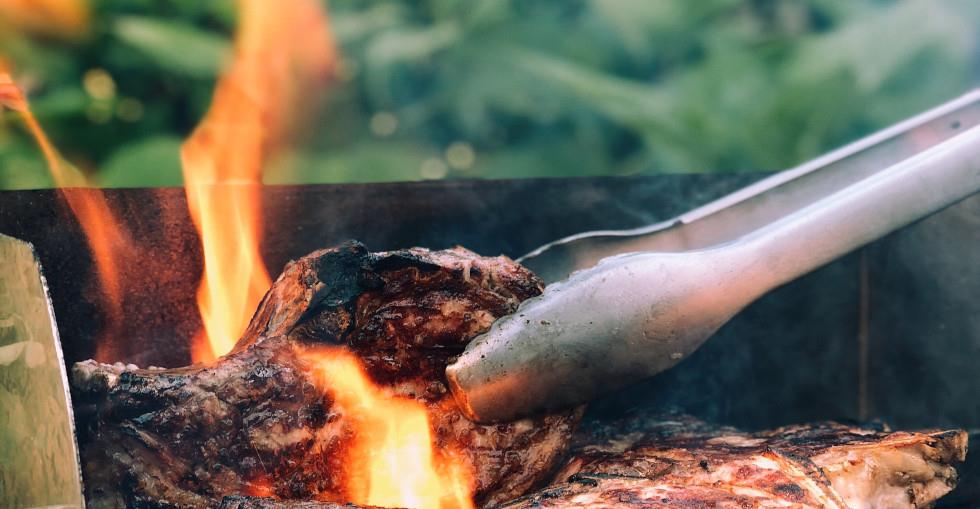In South Africa, meat is more than just food. It is part of our collective South African culture.
Most South Africans enjoy a braai, and for many, it is a way to connect with friends and family. Braaing meat is taken seriously among South Africans, and there is no better place to get your meat from than a butcher you know and trust.
Even though many supermarkets have a butchery, independently owned butcheries are still commonplace. Many people still prefer to purchase their meat from a local, trusted butcher.
That’s why it’s important to not only retain your customers, but to acquire new ones. Let’s go over some steps to run your butchery to success.
Differentiating Yourself
You can stand out from your competitors by offering a variety of high-quality meats which you have sourced from local farmers and hunters. Even though cattle and poultry are abundant in South Africa, it is sometimes hard to find well-priced, organic grass-fed beef, lamb, or chickens.
Like most people, South Africans also question the quality of the food they are eating.
You could market yourself as specializing in these products, and taking environmental and sustainable meat production seriously.
Of course, every butcher should sell biltong. If you don’t, start investing in research and equipment to make it. Each biltong maker develops their unique recipe by curing the meat for a specific period, and using a unique blend of spices.
Legal Requirements
In order to run a butchery in South Africa, you need to have a butchery license. These licenses are not difficult to acquire if you meet all the criteria. The following three things are needed in order to successfully apply for a license:
- You need to make sure that your facility complies with the relevant standard construction requirements.
- An agreement needs to be signed with a third party approved prime safe auditor.
- When you apply for your license, you will also need to pay the applicable fee.
Analyzing Your Competitors
An easy way to learn about your competition is to do a google search of butcheries in your area and to visit their social media pages and websites. While looking at their pages, lookout for the following information:
- Where are they located?
- What products do they offer?
- What is their pricing like compared to yours?
- How are they marketing themselves?
For any food-related business, online research is not enough. You need to be able to view the product, and also taste it. You could visit other butchers for inspiration:
- What is the store layout?
- Do they sell quality meat?
- Do they offer any special services such as cutting meat to size, or do they have products they offer upon request?
- What is their service like?
While you are at their butchery, you should purchase some meat to try at home so that you can compare the quality of their meat to your own.
What is Your Growth Potential?
Your growth potential is relative to the size of the market in your area. This size expands if you offer online purchases and deliveries. You also have an opportunity to create stores in new areas through franchising, which could exponentially increase your revenue.
On average, a South African butcher can earn R17,250 a month. Those with more experience can earn up to R300,000 a year.
Some Interesting Industry Facts
- A total of 21.4% of meat for Africa is produced in South Africa, and livestock represent 34.1% of the total agricultural production.
- A master butcher is a specialist who trains others butchers in the industry. Globally there are only 55 master butchers, and South Africa has five of them.
- The Cleaver Award is an award given to some of the best butchers in the industry.
Innovative Ways to Market Your Butchery
It is vital to have a website and social media pages for your business. Most people search online for products they want to purchase, so you should be present on at least two social media platforms: Facebook, Instagram, Twitter, or Tik Tok. Some ideas include:
- Create different content for your followers showing some everyday aspects of your business.
- Conduct reviews of some of the new meats you have brought in.
- Offer exciting recipes in print and digital formats (and send them out in newsletters).
If you have pamphlets that you hand out, you could also incorporate interesting facts about your industry and your company.
Other ways you could market your products and brand include:
- Host braaing competitions. Select people through social media to participate and host the competition in a public venue. Have the participants only use your meat in the contest, and allow the public to taste what the participants are making.
- Secure a stand at local food markets over the weekends. The Fourways Farmers Narket, the Oranjezicht City Farm and Market Day, Irene Market and Neighbour Goods Market are some of your options.
- Have some samples to serve in your butchery at peak times.
Financing Your Business for Expansion and Growth
If you can show a decent profit for a period of six months to a year, you may be able to get a bank loan.
Alternatively, if you own the property your business is located in, you could apply to loan money from a bank against the value of the property.
If you require bridging finance, growth capital or working capital Spartan could be the solution for you.
If you are turning over a profit, you may be eligible for a loan from Business Partners.
Factors to Consider When Selling Your Business
At some point you may decide that you want to retire or move on to something different. Whatever the reason, there are a number of things to consider when selling your business.
The first thing you need to understand is how much your business is worth. This is crucial, and you can get an accurate valuation of your business through ValueRight.
Secondly, you’ll need to decide if you are going to stay on for some time to assist the new owner (this can increase the value of your business). Of course, you’ll need to decide when you want to exit the business, and get processes in place to manage your timeline and ensure your business performs to its full potential.



